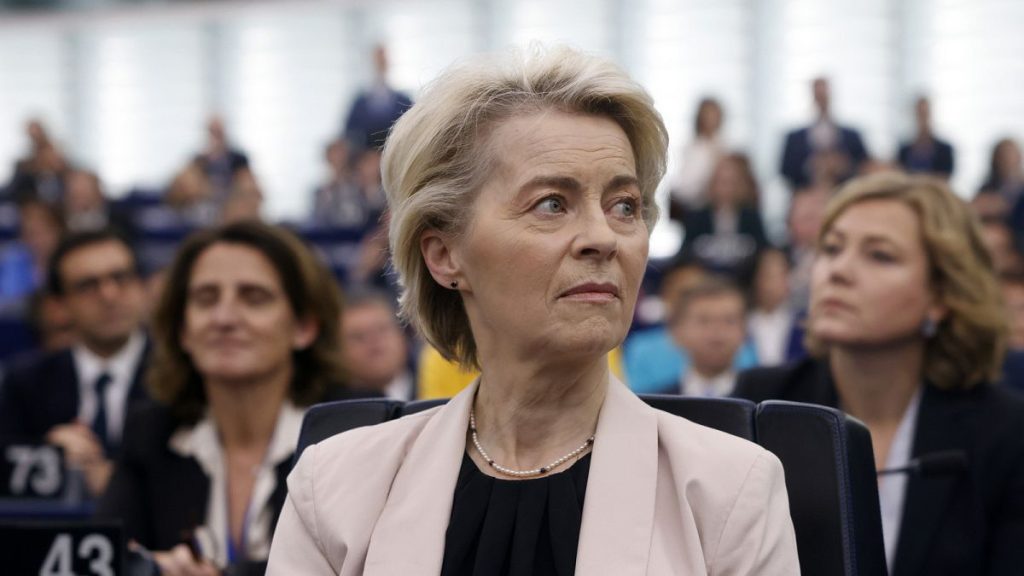The cancellation of the second round of Romania’s presidential elections has sparked a wave of disinformation on TikTok, falsely implicating European Commission President Ursula von der Leyen in the decision. The Romanian Constitutional Court annulled the first round and subsequent run-off based on classified intelligence suggesting interference by a “state actor.” However, TikTok videos, fueled by a misinterpretation of commentary on French television, baselessly accuse von der Leyen of ordering the cancellation, alleging pressure on the Romanian government and outgoing President Klaus Iohannis. These narratives are amplified by accounts often exhibiting anti-EU and anti-Western sentiments while promoting Calin Georgescu, the ultra-nationalist candidate who unexpectedly won the first round.
Adding to the misinformation, certain websites masquerading as news outlets echo the false accusations against von der Leyen, citing a known disinformation portal as a legitimate French media source. This portal, owned by a conspiracy theorist, does not actually implicate von der Leyen in the election annulment as claimed. The disinformation campaign extends beyond TikTok, with similar allegations of European and Western interference appearing on platforms like X and Facebook. Legal experts have described the Constitutional Court’s decision as highly unusual, but the lack of publicly available evidence regarding the alleged electoral breaches makes it difficult to fully assess the situation.
While the European Commission has refrained from commenting directly on the cancellation, emphasizing the right of Romanian citizens to decide their own political fate, it has taken decisive action against TikTok. Citing concerns about potential breaches of the EU’s Digital Services Act (DSA), the Commission launched formal proceedings against the platform. This action is driven by TikTok’s alleged failure to adequately address risks to election integrity in Romania, particularly concerns about the potential for state actor manipulation. The DSA places stringent obligations on large online platforms like TikTok to mitigate systemic risks arising from their content moderation systems, algorithms, and advertising policies.
The Commission’s investigation centers on how TikTok might have facilitated the artificial inflation of Georgescu’s online campaign. It has demanded information from TikTok and ordered the preservation of relevant data, including system recommendations and records of monetized political content promotion. This reflects a wider concern about electoral risks across the EU. TikTok maintains that it has robust systems to protect electoral processes and has already removed several covert influence networks. However, an NGO investigation suggests that Georgescu’s content was promoted at a significantly higher rate than his opponent’s, raising questions about potential algorithmic manipulation, although it doesn’t establish whether this was deliberate or artificial.
TikTok prohibits political content in its paid advertising features. However, Romanian intelligence reports allege that businessman Bogdan Peschir, associated with Georgescu’s campaign, spent substantial sums, including payments to TikTok users for promoting the candidate, violating Romanian law. Peschir denies these allegations, but properties linked to him have been subjected to police raids. The confluence of disinformation, alleged campaign finance violations, and concerns about platform manipulation underscores the challenges posed by online platforms in safeguarding democratic processes. The European Commission’s actions signal a commitment to holding these platforms accountable for their role in ensuring fair and transparent elections.
The Romanian election case highlights the complex interplay between social media platforms, disinformation campaigns, and electoral integrity. The allegations against TikTok, regardless of their ultimate veracity, underscore the need for robust oversight and regulation of these platforms, especially during elections. The ease with which disinformation can spread and potentially influence public opinion, coupled with the opacity of platform algorithms, necessitates greater transparency and accountability from tech companies. The European Commission’s actions against TikTok represent a significant step in this direction, setting a precedent for future enforcement of the DSA and sending a message that platforms will be held responsible for mitigating risks to democratic processes. The ongoing investigation will be crucial in determining the extent of TikTok’s role in the Romanian election controversy and shaping future regulatory efforts to combat online disinformation and manipulation.














